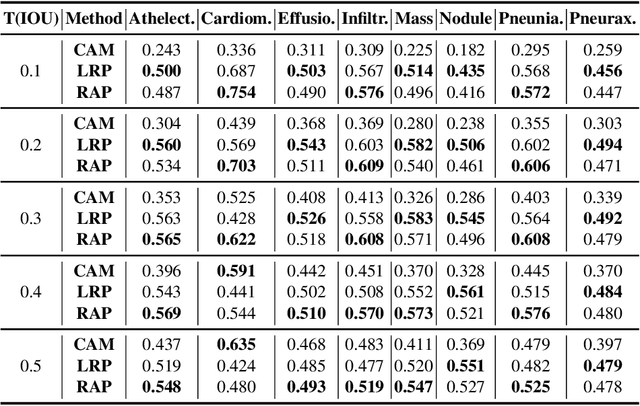Improving Interpretability of Deep Neural Networks in Medical Diagnosis by Investigating the Individual Units
Paper and Code
Jul 19, 2021



As interpretability has been pointed out as the obstacle to the adoption of Deep Neural Networks (DNNs), there is an increasing interest in solving a transparency issue to guarantee the impressive performance. In this paper, we demonstrate the efficiency of recent attribution techniques to explain the diagnostic decision by visualizing the significant factors in the input image. By utilizing the characteristics of objectness that DNNs have learned, fully decomposing the network prediction visualizes clear localization of target lesion. To verify our work, we conduct our experiments on Chest X-ray diagnosis with publicly accessible datasets. As an intuitive assessment metric for explanations, we report the performance of intersection of Union between visual explanation and bounding box of lesions. Experiment results show that recently proposed attribution methods visualize the more accurate localization for the diagnostic decision compared to the traditionally used CAM. Furthermore, we analyze the inconsistency of intentions between humans and DNNs, which is easily obscured by high performance. By visualizing the relevant factors, it is possible to confirm that the criterion for decision is in line with the learning strategy. Our analysis of unmasking machine intelligence represents the necessity of explainability in the medical diagnostic decision.
 Add to Chrome
Add to Chrome Add to Firefox
Add to Firefox Add to Edge
Add to Edge